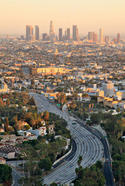The 52 major metropolitan areas of the United States are, in aggregate, approximately 86 percent suburban or exurban in function. This is the conclusion from our new City Sector Model, which divides all major metropolitan zip codes into four functional categories, based on urban form, population density and urban travel behavior. The categories are (1) Pre-Auto Urban Core, (2) Auto Suburban: Earlier, (3) Auto Suburban: Later and (4) Auto Exurban. read more »
Are Law School Grads the Future's Paralegals?
According to recent figures, in the United Kingdom paralegals already make up (as a mean average) 44 percent of all fee earners in solicitors firms, and are on track to outnumber solicitors in firms within a decade. In the US, the Bureau of Labor Statistics projects a 16.7 percent growth in paralegal jobs between 2012 and 2022, adding 46,200 positions. Jobs for attorneys are expected to grow only about 10 percent during that period. read more »
Pandering to the Minority Vote
As they approach what could be a troublesome election season, Democratic party strategists have targeted two issues – inequality and race – as their primary means to prevent another shellacking in the mid-terms.
But given the growing dominance of wealthy and overwhelmingly white gentry liberals, the class issue could prove troublesome, particularly given the tepid performance of the economy. read more »
Are America’s Rich More Generous?
In 2009, the two richest men in America organized a confidential dinner meeting of billionaires in New York City, hosted by David Rockefeller. Guests included George Soros, Michael Bloomberg, Ted Turner, and Oprah Winfrey. The topic of discussion was philanthropy. Each billionaire was asked to describe his philosophy of giving. CNN-founder Ted Turner told the story tale of how he had made a spur-of-the-moment decision to donate $1 billion, most of his future, to the United Nations. During this dinner, Bill Gates and Warren Buffet started the biggest fundraising drive in history. Setting examples though their own charity, Gates and Buffet initiated “The Giving Pledge”, a campaign encouraging billionaires to commit the majority of their wealth to philanthropic causes. So far around 113 billionaires have agreed to the pledge. read more »
- Login to post comments
California’s Green Bantustans
One of the core barriers to economic prosperity in California is the price of housing. But it doesn’t have to be this way. Policies designed to stifle the ability to develop land are based on flawed premises. These policies prevail because they are backed by environmentalists, and, most importantly, because they have played into the agenda of crony capitalists, Wall Street financiers, and public sector unions. read more »
Know Your City's Marketplace Leverage
I’ve noticed so often that urbanist policy suggestions or case studies are treated as universals. That is, with a presumption that a good idea or policy can be replicated pretty much anywhere. Clearly, there are a number of items like bike lanes and trails that would appear to be widely applicable, and for which the best practice standards would appear to work without much modification in most places. On the other hand, this isn’t true of everything. read more »
The Cities Winning The Battle For Information Jobs 2014
In the town of Verona on the rural fringes of Madison, Wisc., there’s a Google-like campus that houses one of the country’s most rapidly growing tech companies, and one of the least well known. Founded in 1979, the medical software maker Epic has grown to employ 6,800 people, most of whom work at its 5.5 million-square-foot headquarters complex, which sprawls over 800 acres of what was farmland until the early 1990s. read more »
- Login to post comments
Three-headed Democratic Party
As they face the midterm elections with the wind in their faces, Democrats increasingly stake their collective political future on the issue of inequality. The topic has great resonance, given the economy’s vast preponderance of benefits to the very rich and the almost obsessive focus on the issue by the mainstream media. read more »
From Anecdotes to Data: Core & Suburban Growth Trends 2010-2013
According to the Wall Street Journal, there are "Signs of a Suburban Comeback." This is a turnaround from the typical media coverage of US population estimates in recent years, which have more often than not heralded a "return to the cities" generally more rooted in anecdote than data.
There were always at least two problems with the "return to the city" thesis. First of all, most people who live in the suburbs came from areas outside metropolitan areas and they couldn't return to where they had never lived (see Cities and Suburbs: The Unexpected Truth). More importantly, in every year for which there is data, the net inward migration to suburbs has been far greater than to the core counties, which have nearly always had net outward migration (see Special Report: 2013 Metropolitan Area Population Estimates. Under these conditions, there could not have been net migration from the suburbs to the core municipalities. read more »
- Login to post comments
Is Something Wrong With Chicago’s Suburbs?
I previously talked about Connecticut becoming a suburban corporate wasteland as well as the rise of the executive headquarters in major global city downtowns. read more »





















